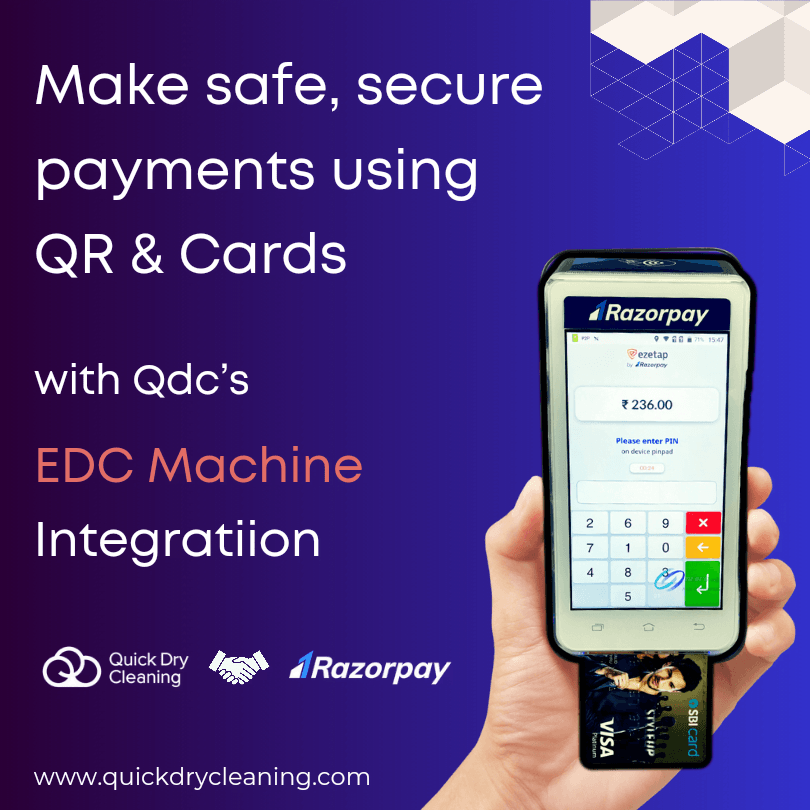In today’s digital era, businesses are rapidly moving towards cashless transactions. An EDC machine (Electronic Data Capture machine) is an essential tool that enables businesses to accept payments via debit and credit cards, ensuring smooth and secure transactions. In this blog, we will explore everything about machines, their types, benefits, and how to choose the right one for your business.
What is an EDC Machine?
An EDC machine is a payment processing device that facilitates electronic transactions by capturing and transmitting cardholder data to the payment network for authorization. These machines are commonly used by retail stores, restaurants, and service providers to accept card payments efficiently.
How Does an EDC Machine Work?
An EDC machine functions in a few simple steps:
- The customer swipes, inserts, or taps their debit/credit card on the machine.
- The device securely transmits transaction details to the payment processor.
- The bank verifies the transaction and approves or declines it.
- The merchant receives a confirmation, and the payment is processed.
Types of EDC Machines
There are different types of EDC machines available, depending on business needs.
1. Wired EDC Machine
A wired machine is connected to a landline or internet cable, ensuring a stable and secure transaction process. These are commonly used in brick-and-mortar stores.
2. Wireless EDC Machine
A wireless machine operates on Wi-Fi, GPRS, or Bluetooth, making it a convenient choice for businesses with on-the-go sales, such as restaurants and delivery services.
3. Mobile POS (mPOS)
A mobile POS machine is a compact, smartphone-compatible device that connects via Bluetooth or an app, allowing businesses to accept payments anytime, anywhere.

EDC Machine Price
The price of an EDC machine varies depending on the type, features, and payment provider. Basic wired machines typically cost between ₹2,000 to ₹5,000, while wireless models range from ₹5,000 to ₹15,000. Advanced mobile POS (mPOS) devices may start at ₹1,500 and go up to ₹10,000. Some banks and payment service providers offer rental options, charging a monthly fee of ₹300 to ₹1,500, depending on transaction volume and additional services. Always compare different providers to find the best machine that suits your business needs and budget.
Benefits of Using an EDC Machine
1. Secure Transactions
An EDC machine ensures end-to-end encryption, reducing the risks of fraud and unauthorized access.
2. Faster Payments
With quick processing, an EDC machine speeds up transactions, improving customer experience and reducing checkout time.
3. Increased Sales
By accepting card payments, businesses can cater to more customers, boosting overall sales and revenue.
4. Digital Record-Keeping
Every transaction through an EDC machine is recorded digitally, simplifying financial management and reducing errors.
5. Enhanced Customer Convenience
Customers prefer card payments due to their ease and security, making an machine a must-have for modern businesses.
How to Connect an EDC Machine with QDC Software
Connecting an EDC machine to QDC software is a straightforward process. Follow these steps for seamless integration:
1. Log in to your QDC account and navigate to the Store Admin section.
2. Go to Payment Gateway Setup and select EDC Configuration.
3. Follow the prompts to configure your EDC device in collaboration with Razorpay.
4. Once set up, you’re ready to start capturing payments directly from the delivery screen.
Conclusion
An EDC machine is an essential tool for businesses looking to streamline payments, enhance security, and improve customer satisfaction. By choosing the right type of machine, you can ensure seamless transactions and grow your business effortlessly.

